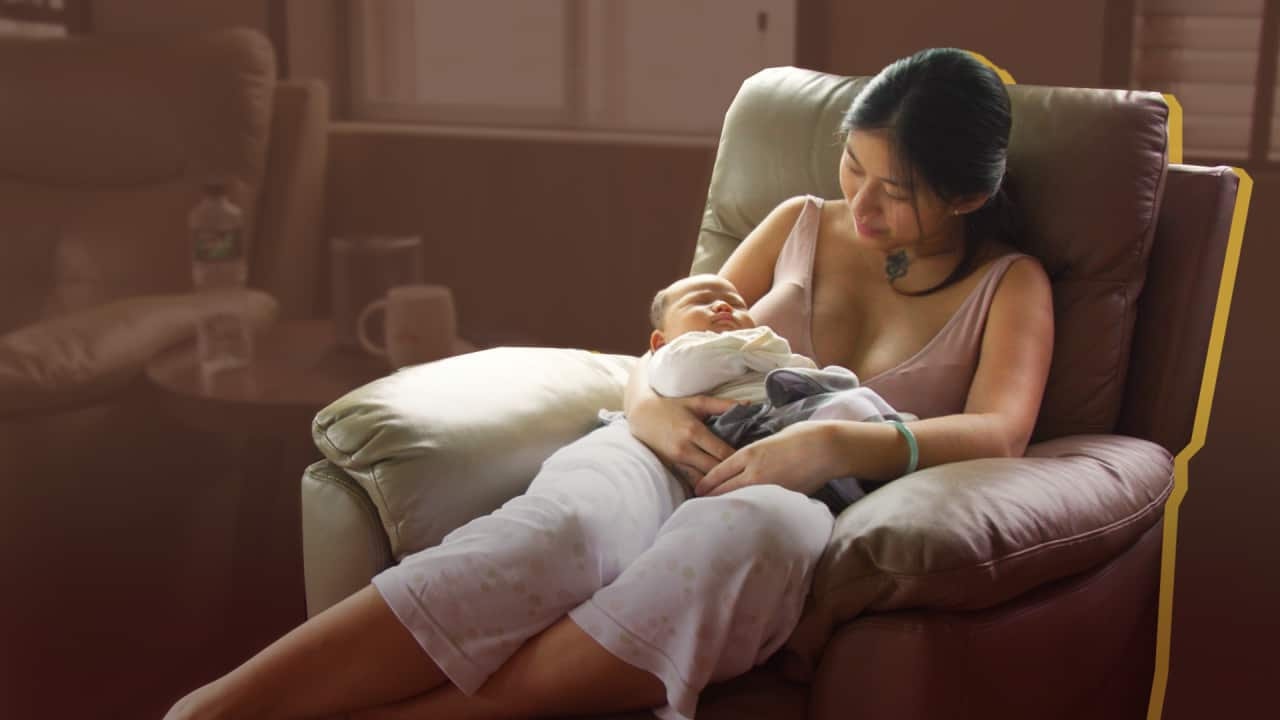Does the tradition of confinement give mum and baby a better start? Watch Dateline’s 2023 documentary from Taiwan
Stream free On Demand

The Best Place To Have A Baby?
episode • Dateline • Current Affairs • 29m
episode • Dateline • Current Affairs • 29m
The idea of being confined to home for a month with a newborn might not appeal to everyone, but for Sydney mother Xiao Ying Parker, it’s bliss.
Lane Cover-based Ying and her two-week-old daughter Bernadette are intentionally homebound. This is part of the ancient Chinese tradition of postpartum confinement that she’s observed during both of her pregnancies. (Her eldest daughter is two.)
"It’s meant to be good for my body and for my recovery," Ying, who had a cesarean section, says.
Known as zuo yue zi or 'sitting the month', it is a time for new mothers to rest and recover after childbirth.
Traditionally, the new mum is housebound for 30 to 40 days. The rules are strict to protect her from catching a cold: no going outside, no showers or washing her hair, no cold foods. She has to drink herbal teas and eat soups and other special ‘confinement’ dishes. All under the strict guidance of her mother or mother-in-law.
But new mums are adapting the old customs to modern life.

Sydney mum Xiao Ying Parker is doing the traditional Chinese confinement with a modern twist. Source: Supplied / Mitchell Parker
"He’s doing well as a confinement mum," Ying tells Dateline.
"He’s making sure I'm not lifting a finger so I can rest and keep my activity to a minimal.
"The truest form of confinement is when the mother does as little as possible."
Ying also has freshly cooked meals delivered daily through a service that specialises in confinement nutrition. She says it’s a great way to enjoy the benefits of traditional Chinese herbal medicine for someone who doesn’t have much knowledge about it.
But she’s also happy to depart with some confinement rules such as not washing her hair for 30 days.
"I’m not doing that," she says.
Nor is she avoiding cold meals and drinks.
"Traditionally for healing, you‘re meant to have warm things. You're not meant to have ice-creams or cold drinks. But being summer and hot I'm definitely sneaking in a cold drink."
Focus on a new mum
Nicole Chien is a Taiwanese-Australian confinement practitioner in the Sydney suburb of St Leonards.
"For 1,000 years, we’ve known what’s important for women: rest, nutrition and support," she says.
People focus on a newborn baby, she says, but it's the woman who needs attention.
It’s important for new mothers to rest and recover, for their wounds, for their mental health, and "so their organs can restore back to normal."

Nicole Chien had to go to Taiwan for her own confinement. Now she's delivering meals to Sydney mums recovering after childbirth. Source: Supplied
She’s now a local distributor for a Taiwanese company, Taste for Life, that sells home delivered ready-made meals of Chinese herbal soups, teas and glutinous rice dishes. She also offers freshly made confinements meals delivered daily to Sydney-based clients.
"The thing that surprises me as time goes by is that women from other cultural backgrounds are paying attention to postpartum confinement and herbal nutrition to help them," Chien says.
"They say they see Asian mums recovering quickly and they want to try it."
Postnatal hotels
Like Chien, Avalon Nethery saw a business opportunity after her own experience of giving birth.
Hospital was "awful" and full of "conflicting advice," she says.
"I had depression, anxiety and intrusive thoughts. I needed mother-centric, responsive care. Something that’s simply not achievable in a hospital environment."
She didn’t know much about the confinement tradition. But after researching it, she took inspiration from it.
Four months ago, she opened Borne, a postpartum wellness centre inside the Intercontinental Hotel in Sydney's exclusive Double Bay.

Avalon Nethery took inspiration from the Chinese confinement tradition to open a post-natal centre. Source: Supplied / Liz Keene
At Borne, mums and bubs can drop in for a day or stay from Monday to Friday, with 24/7 specialist staff on hand, including midwives, lactation consultants, and doulas (a birth and postpartum support professional). The menu is a mix of Ayurvedic and Chinese confinement meals. A week-long stay costs $8,800.
Nethery says Borne’s services are influenced by the Asian confinement culture but with differences.
"What we do differently is that in Asian postpartum hotels the nursery is used quite a lot. At Borne, we encourage mothers to be hands-on with their babies. But if mum wants a break, then fine," she says.
Nethery thought she would have a lot more interest from the Asian communities but instead, her clients are: "mainly western Anglo, of whom many have no family in Sydney."












